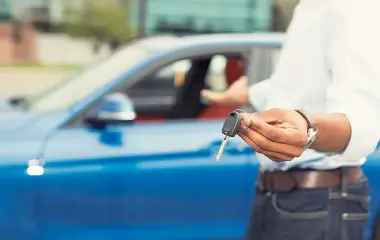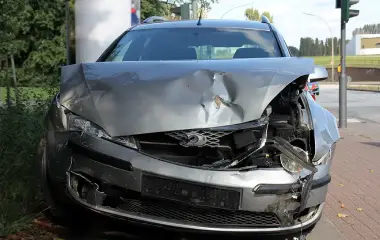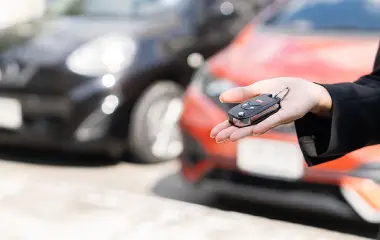We enjoy our work. It pays well and it’s an honest living. Also, the world needs less junk cluttering it up. And the more we recycle, the better off we’ll all be. But what’s your interest?
Maybe you’re curious about how salvagers go about recycling cars, and what we actually do to your smashed, unroadworthy, rusted cars after we buy them from you. Or, you’re keen to know what the most valuable parts of your car are so you can sell them off. Well, like we said: the more people recycle, the better.
In this quick guide, we’ll list which car parts can be recycled into new components or raw materials for other uses.
If you’re an experienced, capable and safe car mechanic, you might be able to remove some of the usable components and sell them yourself before you sell what’s left to a salvager. That might get you a little extra cash. But remember, if you want to sell your scrap car for cash quickly and for a competitive price, let 1800 Salvage put in a bid.
What car parts can be recycled?
Tyres
Old car tyres can be recycled and upcycled in several ways. If the tyres are still in decent condition, they can be sold to tyre businesses (who will, of course, market them as second-hand goods).
If the tyres are too bald to be driven on, we’ve got other options.
Bald tyres can be shredded down into crumb rubber, which is exactly what it sounds like. Crumb rubber can be used in several industrial and manufacturing capacities. For example, shredded tyres are often upcycled into soft flooring for outdoor playgrounds, a base for artificial turf, or as a modifying component in road asphalt.
Car batteries
Like old tyres, a second-hand car battery can be resold as long as it’s still in safe, working condition. If they aren’t, they can be scrapped for valuable components.
There are several types of car batteries, such as lead-acid, nickel-metal hydride and lithium-ion batteries. Each one demands a unique and complex recycling process. Car battery recycling specialists primarily aim to recover:
- Lead
- Lithium
- Nickel
- Cobalt
- Plastic
- Sulfuric acid
Batteries in hybrids and EVs can be a little trickier to recycle. While they do contain valuable materials and components, the infrastructure to actually recycle them isn’t as well-established as what’s needed for conventional batteries. Still, as professional salvagers, it’s our responsibility to get them into the right hands.

Catalytic converters
Catalytic converters are some of the most valuable components in the auto recycling industry. In case you aren’t aware of what they do, they strip some of the more harmful emissions out of your car’s exhaust through chemical reactions. For these reactions to occur, your exhaust passes through filters made of highly valuable metals, including platinum, palladium, and rhodium.
A functioning second-hand catalytic converter can be reused. However, the metals inside them are in high demand in other industries. Car recycling businesses will recover, refine and recycle these scarce metals so that they can be used to manufacture brand-new catalytic converters, jewellery, electronic components and more.
Recycling these precious metals is far better for the environment than having to mine them.
Starters and alternators
Second-hand starters and alternators are crucial components in practically all vehicles, so they're always in demand. The great thing about these components is that they’re quite durable, so they’re relatively easy to salvage.
Functional starters and alternators can be refurbished or rebuilt; all we (well, our partners) need to do is disassemble them, thoroughly clean them, replace any worn bits, bobs and bearings, and then reassemble them. They can then be sold on the second-hand market.
If they’re too worn or damaged to repair, we can salvage them for raw materials like copper, aluminium and steel.
Electrical components
Modern vehicles are an absolute treasure trove of valuable electrical components. You can remove one or two of these components and sell them yourself if you have the know-how to do it safely. We try to salvage:
- Radios and entertainment systems
- Speakers and sound systems
- Engine control units
- Dashboard video panels
- Rear-view cameras
- Small electric motors
- Sensors and relays
- Lights and light assemblies
- Air conditioning units

Motor oil and oil filters
People typically don’t scrap cars that’ve just had a fresh oil change. But even old engine oil can be salvaged and put to good use.
Old motor oil is contaminated with heavy metals and poisons, so the first thing recyclers do is test batches of oil for purity. Each batch’s contamination level determines how it’s recycled.
Recycling engine oil is quite an intensive process. The oil needs to be dehydrated to remove any water. Then, it needs to be filtered and demineralised to remove those heavy metals and poisons. Once it’s been refined, it needs to be re-refined into usable products, which include new engine oil, industrial burner fuel and various petroleum-based products.
Glass
Car windows and windshields are great for recyclers. However, safely removing them without damaging them is quite a challenge and is typically beyond the capabilities of a non-specialist.
Automotive glass is specially treated to improve its safety value. Windshields use shatterproof safety glass, which is a film of plastic clamped between two layers of glass. Windows and other glass components are made of tempered glass which shatters into small pieces rather than large lacerating blades.
If your vehicle’s windshields and windows are intact, they can be resold and used second-hand. If they aren’t, they can be sold to glass recyclers, who can separate glass from plastic and then crush it into cullet (ground-up glass). The cullet can then be used to manufacture glass products or even mixed into asphalt to pave roads.
Scrap metal and plastic
Once we’ve stripped car bodies down to their bones, what’s left to do but recycle the bones?
Selling scrap metal and plastic isn’t just about hawking hunks of old cars. Professional salvagers need to break vehicles down into plastics, ferrous metals (which include iron and iron alloys like steel), and non-ferrous metals (which aren’t iron alloys, like aluminium, titanium, steel, nickel, and lead).
These materials are shredded, sorted, melted, purified, compounded, and manufactured into new products such as automotive parts and white goods.

How to make the most money from recycling car parts
As a salvager, we can tell you that effectively recycling and upcycling car parts is mainly about selling these components to specialists with the industrial pipeline in place to extract value from scrap.
If you’ve got a wrecked or unwanted car to scrap, you may be able to remove and sell off individual components. But that’s a chore and it needs to be done safely to avoid injury, not to mention damage to the component.



.jpeg)

.jpeg)

.webp)
